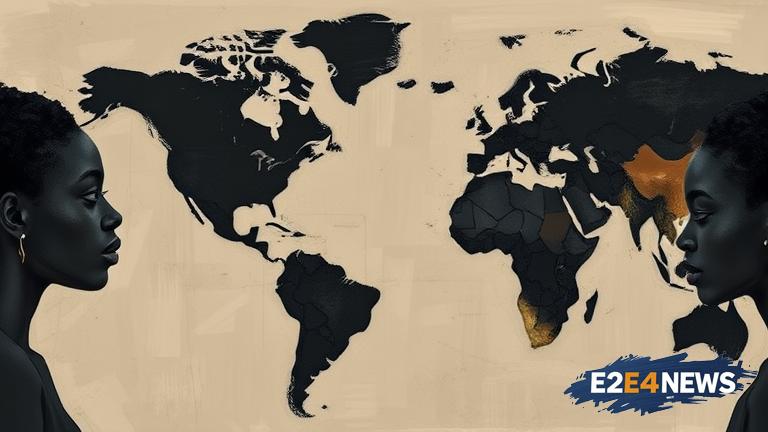The notion that being a Black man inherently means being an African is a concept that has sparked intense debate and discussion. At its core, this idea seeks to unify the experiences and identities of Black men across the globe, emphasizing a shared heritage and cultural roots. However, this perspective also raises important questions about the complexities of identity, culture, and nationality. For many, the term ‘African’ conjures images of a specific geographic region, yet the African diaspora is a testament to the widespread presence of people of African descent around the world. The legacy of colonialism, slavery, and migration has dispersed Africans across the globe, leading to the creation of diverse Black communities. Despite these historical and contemporary movements, the connection to an African identity remains a powerful symbol of unity and solidarity. It is essential to recognize that being a Black man does not solely define one’s identity, as individual experiences, cultural backgrounds, and nationalities play significant roles. Nevertheless, the shared history and ongoing struggles of Black men worldwide create a bond that transcends borders and geographical boundaries. The African diaspora has given rise to vibrant cultures, from the African American community in the United States to the Afro-Caribbean communities in the UK and beyond. These communities have developed unique traditions, customs, and ways of life that are deeply rooted in their African heritage. However, it is also crucial to acknowledge the diversity within these communities, as individual experiences and perspectives can vary greatly. The concept of African identity is not limited to the continent of Africa itself but extends to any person of African descent, regardless of their nationality or geographic location. This inclusive definition recognizes the historical and ongoing connections between people of African descent worldwide. Furthermore, embracing an African identity can serve as a source of pride, empowerment, and solidarity for Black men, providing a sense of belonging to a larger community. It is also important to address the potential criticisms and challenges to this concept, including concerns about cultural appropriation, essentialism, and the erasure of individual experiences. Ultimately, the idea that being a Black man means being an African serves as a powerful reminder of the shared history, culture, and struggles of people of African descent worldwide. By embracing this identity, Black men can forge stronger connections with their heritage and with each other, fostering a sense of unity and collective empowerment. The recognition of a shared African identity can also facilitate greater understanding, cooperation, and solidarity between different Black communities worldwide. As the world becomes increasingly interconnected, the importance of acknowledging and embracing our shared humanity and cultural heritage cannot be overstated. In conclusion, the concept of African identity as it relates to Black men is complex, multifaceted, and deeply personal. While it is essential to recognize the diversity of experiences and perspectives within the Black community, the shared history and cultural heritage of people of African descent serve as a powerful unifying force. By exploring and embracing this identity, Black men can cultivate a deeper sense of pride, belonging, and connection to their heritage and to each other. The ongoing discussion and debate surrounding this concept will undoubtedly continue to evolve, but its significance as a symbol of unity and solidarity for Black men worldwide remains undeniable. As we move forward in an increasingly globalized world, the recognition of our shared African identity can serve as a powerful catalyst for greater understanding, cooperation, and collective empowerment. The time has come to embrace our shared heritage and to forge stronger connections with each other, celebrating our diversity while acknowledging our common roots. By doing so, we can work towards a brighter future, one that is built on the principles of unity, solidarity, and a deep appreciation for the rich cultural heritage of people of African descent worldwide.
